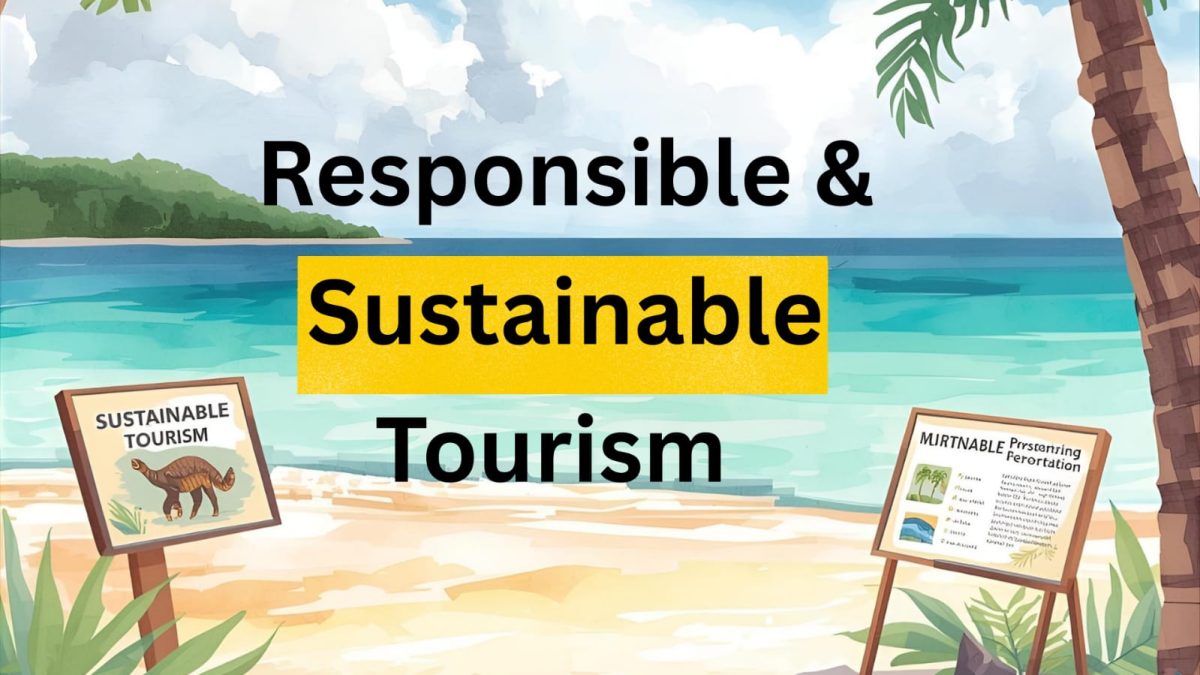What is the Importance of Responsible and Sustainable Tourism

What are the Future Trends of Travel and Tourism
12 November 2025
What is the Role of Travel Agencies in the Travel Industry
15 November 2025
Categories
Tags
- 10 Benefits of Travel and Tourism
- Benefits of Galileo for travel agents
- Benefits of Joining Travel and Tourism Industry in India
- Career in Travel and tourism in India
- career in travel industry
- Education In Travel
- Future In Travel
- Skills required to make Career in Travel and Tourism Industry
- Top 10 skills required for the travel and tourism industry
- Tourism management skills resume
What is the Importance of Responsible and
Sustainable Tourism
Tourism is one of the most popular industries in the world. It gives people a chance to travel, explore new places, and learn about different cultures. It also creates jobs, brings money to countries, and helps communities grow. But at the same time, tourism can also harm nature, put pressure on local people, and damage culture if it is not managed properly. This is why sustainable and responsible tourism is very important. It means enjoying travel while also caring for the environment, respecting people, and protecting traditions for the future.
-
What Sustainable and Responsible Tourism Means
Sustainable tourism is a way of traveling that meets the needs of people today without harming the needs of future generations. It is about making sure that natural resources, culture, and communities are protected. Responsible tourism means travelers, businesses, and governments make careful choices. They travel or provide services in ways that reduce harm and give benefits to local people. Both ideas are closely linked, and together they make tourism useful, fair, and safe for everyone.
-
Caring for the Environment
Tourism often affects the environment. Too many tourists in one place can create waste, pollution, and harm to natural areas. For example, beaches may get dirty, forests may be cut down for hotels, and animals may lose their homes. Sustainable tourism works to reduce this damage. Tourists can help by:
-
Avoiding single-use plastics.
-
Using reusable water bottles and bags.
-
Not littering in natural places.
-
Respecting wildlife and not disturbing animals. Hotels and businesses can also take steps by saving water, using renewable energy like solar power, and managing waste properly. When everyone takes small steps, nature remains clean and safe for both people and animals.
-
Helping Local Communities
Tourism should benefit local people. When tourists only spend money on big international companies, very little reaches the local community. Responsible tourism encourages travellers to support locals directly. This can be done by:
-
Staying in homestays or local guesthouses.
-
Buying handmade products and crafts.
-
Eating food at local restaurants.
-
Hiring local guides for tours. When this happens, local families earn money, small businesses grow, and more jobs are created. It also reduces poverty and gives locals more opportunities to improve their standard of living.
-
Protecting Culture and Heritage
Culture is an important part of tourism. People travel to experience traditions, festivals, food, music, and historical sites. But sometimes tourism can harm culture. For example, monuments can be damaged by overcrowding, and traditions may be lost if they are not respected. Sustainable tourism protects culture by encouraging respect for local customs and helping communities preserve their heritage. Tourists should learn basic rules, dress modestly where required, and behave politely. This way, culture remains alive, and communities feel proud to share it.
-
Long-Term Benefits
Tourism that only focuses on quick profit can destroy resources. For example, if forests are cut for hotels or rivers are polluted, the destination will lose its beauty. Tourists may stop visiting, and people will lose jobs in the future. Sustainable tourism is different. It protects resources so that the place remains attractive for many years. This means future generations can also enjoy the same destinations. It creates long-term jobs, stable income, and continued cultural exchange.
-
Role of Everyone
Sustainable and responsible tourism is not the duty of one person alone. Tourists, businesses, and governments all share responsibility.
-
Tourists can travel responsibly by reducing waste, respecting local rules, and choosing eco-friendly options.
-
Businesses can adopt green practices, treat workers fairly, and support local suppliers.
-
Governments can make laws to protect nature, heritage, and communities.






